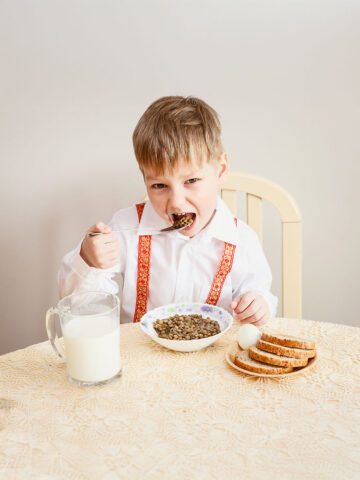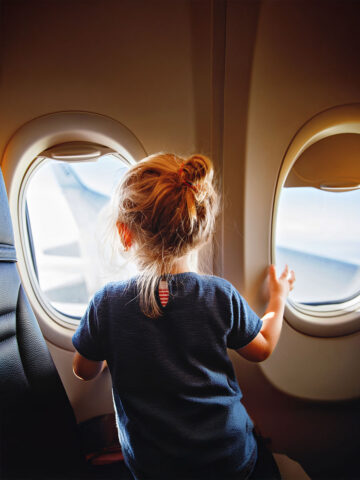The holiday season is a festive time, but can present unique challenges for children with food allergies and their parents. We spoke to Vanessa Chrisman, a clinical pediatric dietitian at CHOC, who has advice for parents on navigating a season often filled with parties and treats while managing their child’s dietary restrictions.
What are some of the most common food allergies/dietary restrictions that children face?
The most common food allergies that children face include: wheat, dairy, egg, soy, peanuts, tree nuts, shellfish and fish. They are known as the top eight, as these foods account for 90 percent of all allergic reactions to food. The severity of an allergic reaction really varies from one child to the next. An example of a mild reaction would be a small rash on one hand that goes away in a couple hours. A more severe reaction could involve swelling of the face, vomiting and diarrhea, and/or coughing or wheezing. Severe reactions can be life-threatening.
How does suffering from food allergies complicate festive occasions such as holiday celebrations?
Children with food allergies often are restricted from eating the foods that are offered at holiday parties. As a result, these children may feel like they are missing out or being punished for having food allergies. To help ease this problem, parents need to be proactive and plan ahead when it comes to approaching holiday parties and meals. Bringing allergen-safe food along to parties or preparing special baked good for the child with food allergies are two examples of how to deal with this.
What can parents do in their own home to accommodate dietary restrictions that one child faces, when there are other children in the home without that allergy or restriction?
Depending on the food allergen, parents can decide whether or not they will keep food allergens out of the home or not. Labeling areas as safe zones (allergen-free) both in the pantry and the refrigerator is helpful. Keeping unsafe foods tucked away and stored in air-tight containers is also advised. Everyone in the family should learn how to read food labels and ingredient lists. To prevent the transfer of food allergens, all family members should wash their hands before and after eating. Practicing safe food preparation is important for avoiding cross-contamination. Counters and tables should be scrubbed down before and after meals. When eating or serving food use separate utensils that have not come into contact with allergens. Parents can educate their children on food allergies, as well as the importance of keeping food allergens away from the child who is allergic.
How can parents accommodate their child’s allergies when partaking in festive events outside the home?
Parents should talk to their child’s teacher and school nurse at the beginning of each school year so they can be prepared for any celebrations at school where food is involved. When their child is going to a birthday party or to a friend’s house, parents need to talk with the parents who will be watching over their child. Explain your child’s food allergy, what foods to avoid, what symptoms to look for, what specific foods are safe to give and how to practice safe food handling. Parents can also send their child with special “safe foods” to be consumed when outside the home. For those with a prescription for an epinephrine injection for anaphylaxis, ensure your child has it with them at all times and that other care providers know how to administer it.
Get more expert health advice delivered to your inbox monthly by subscribing to the KidsHealth newsletter here.
Learn more about CHOC’s Clinical Nutrition Program
At CHOC, we specialize in providing a full continuum of pediatric nutrition services, including inpatient and outpatient services, depending on our patients’ needs.





